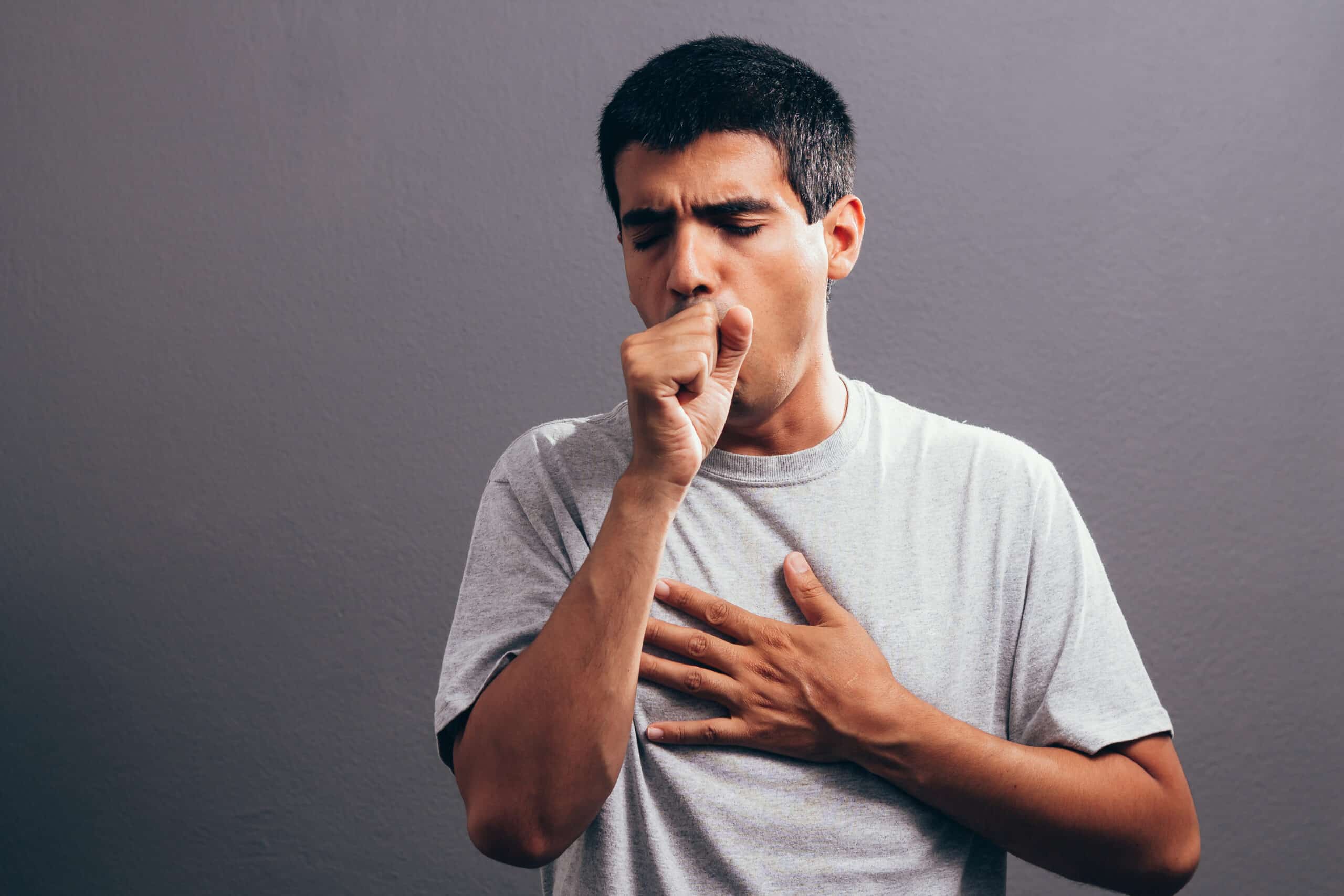Did you know that catching lung cancer early could save your life? It’s a disease that often stays quiet at first, with symptoms that can seem like nothing more than a lingering cough or mild discomfort. But lung cancer isn’t as rare as you might think. Every year, hundreds of thousands of people worldwide are diagnosed with this condition, and sadly, it claims more lives than any other type of cancer.
What makes lung cancer tricky is how it can mimic everyday illnesses like a cold, bronchitis, or even allergies. It’s easy to overlook the signs or dismiss them as something minor. That’s why understanding the symptoms is so important. Early detection can mean the difference between a simple treatment plan and a more serious battle.
This article is here to help you identify 13 critical symptoms of lung cancer that oncologists say shouldn’t be ignored. From persistent coughing to unexpected weight loss, these signs might seem ordinary but could point to something much more serious. By knowing what to watch for, you can take control of your health and act quickly if something feels off. Don’t miss the chance to protect yourself or your loved ones—keep reading to learn what you need to know.
Understanding the Importance of Early Diagnosis
Catching lung cancer early can make a life-changing difference. When found in its early stages, this disease is far more treatable, giving people a much better chance of recovery and survival. That’s why paying attention to the small signs your body might be giving you is so important.
Lung cancer doesn’t usually shout its presence in the beginning. Instead, it progresses quietly, often mistaken for common issues like a cold or mild respiratory problem. While the symptoms might seem harmless at first, they can quickly grow into something far more serious if left unnoticed.
Recognizing these signs early gives doctors the chance to treat the cancer before it spreads. Treatments are often simpler and more effective during the initial stages, and the chances of living a longer, healthier life are much higher.
The key is not to ignore what might seem like minor changes—things like a lingering cough, shortness of breath, or chest pain. Acting quickly and seeking medical advice can save lives. Early detection isn’t just important—it’s critical. Knowing what to watch for and getting checked early could make all the difference for you or someone you care about.
Thirteen Symptoms You Should Never Ignore
Recognizing these symptoms early could make all the difference in catching lung cancer before it becomes more serious.
1. Persistent, Unexplained Cough
A cough that lingers for more than two weeks without any clear reason could be a sign of lung cancer. This type of cough often doesn’t go away with over-the-counter remedies and feels different from a common cold or seasonal allergies. It might start as a dry cough but can become persistent and even painful. If you notice a cough that doesn’t seem to improve or worsens over time, it’s important to take it seriously. Don’t brush it off as just another illness—talk to a doctor and get it checked out.
2. Coughing Up Blood
Coughing up blood, even in small amounts, is never normal and should raise an alarm. This symptom, called hemoptysis, happens when tumors irritate or damage the airways, causing bleeding. The blood might look bright red or have a rust-like color, and it can appear mixed with mucus. While it might seem minor at first, it’s often a sign of something more serious going on inside your lungs. If you notice this, contact a healthcare professional immediately for a thorough evaluation. Early treatment could prevent the situation from getting worse.
3. Chest Pain That Doesn’t Go Away
Persistent chest pain that doesn’t improve could be connected to lung cancer. This pain is often felt deep in the chest and might extend to the ribs or shoulders. It can get worse when you take a deep breath, laugh, or cough. Unlike temporary discomfort from exercise or muscle strain, this pain tends to linger and can be a signal that something is wrong inside the lungs. If you experience ongoing chest pain, don’t ignore it. A medical check-up can help determine the cause and provide peace of mind.
4. Shortness of Breath
Feeling out of breath during simple tasks, like climbing stairs or walking short distances, might be more than just being out of shape. Lung cancer can block airways or cause fluid buildup around the lungs, making it harder to breathe. This symptom might start gradually and worsen over time, leaving you feeling winded even when resting. It’s not normal to struggle for air during routine activities. If you notice frequent shortness of breath, especially without a clear cause, it’s time to see a doctor. Early detection could lead to better outcomes.
5. Hoarseness or Voice Changes
A sudden change in your voice, like hoarseness or a raspy tone, might be related to lung cancer. Tumors can press on the nerves that control the vocal cords, affecting how your voice sounds. You might notice that your voice feels weaker or sounds different, even without a sore throat or other common causes. While voice changes can happen for many reasons, lasting hoarseness should be taken seriously, especially if it doesn’t improve. If this symptom persists, it’s worth getting checked out to rule out any serious underlying conditions.
6. Unexplained Weight Loss
Losing weight without trying might seem like a bonus, but it can be a warning sign of lung cancer. Cancer affects how your body uses energy, often leading to a faster breakdown of fat and muscle. If you notice significant weight loss—like dropping more than 10 pounds in a short time—without changing your diet or exercise routine, it’s worth investigating. This kind of weight loss isn’t normal and could be a sign that something deeper is happening in your body. A doctor can help uncover the cause and suggest next steps.
7. Chronic Fatigue
Cancer cells drain your body’s energy, leaving you feeling exhausted no matter how much rest you get. This kind of fatigue goes beyond just feeling tired after a long day—it’s a constant, overwhelming lack of energy that doesn’t improve with sleep. You might find it hard to get through your usual activities or feel like you’re always running on empty. Chronic fatigue is a symptom that shouldn’t be ignored, especially if it comes with other unusual signs. Talking to a doctor can help you figure out what’s behind it.
8. Recurring Infections
If you’re getting sick more often than usual, it could be a sign of weakened lung function. Lung cancer can make you more prone to infections like bronchitis or pneumonia. These illnesses might stick around longer or come back repeatedly, even after treatment. If you find yourself dealing with frequent respiratory infections, it’s worth considering whether something more serious might be affecting your lungs. Don’t wait—consulting a healthcare provider could lead to early detection and treatment.
9. Bone Pain
Lung cancer that spreads to the bones can cause deep, aching pain in unexpected places, like your hips, back, or arms. This pain might feel worse at night or when you’re active. Unlike the soreness from a workout or a minor injury, bone pain linked to cancer doesn’t go away and often gets more intense over time. If you’re dealing with persistent pain that doesn’t seem to have a clear cause, it’s important to bring it up with a doctor. Early intervention could make all the difference.
10. Swelling in the Face or Neck
Swelling in the face or neck can happen when tumors block blood flow in the veins leading to the heart. This blockage causes fluid to build up, leading to visible puffiness or redness. You might notice that your face looks fuller than usual or that your neck feels swollen. While this symptom can be caused by other conditions, it’s not something to overlook. If you spot unusual swelling, especially if it’s paired with other symptoms, it’s a good idea to get it checked out.
11. Muscle Weakness
Lung cancer can sometimes affect the nerves and muscles, leading to unexplained weakness. You might feel like your arms or legs are heavier than usual, making everyday tasks like lifting objects or climbing stairs more difficult. This weakness isn’t just about feeling tired—it’s a noticeable change in your strength that doesn’t improve. If you’re experiencing muscle weakness without a clear reason, it could be linked to your lungs. A medical professional can help determine the cause and provide guidance.
12. Nausea and Vomiting
Lung cancer can sometimes impact your digestive system, leading to nausea or vomiting. This might happen because the cancer is releasing substances that disrupt how your body works. You might also notice a loss of appetite, making it hard to eat as much as usual. While occasional nausea can have many causes, persistent or severe symptoms should be taken seriously. If this is happening alongside other signs, it’s worth talking to a doctor to see what’s going on.
13. Mood Changes or Confusion
Changes in mood or mental clarity, like feeling unusually irritable or forgetful, can sometimes be linked to lung cancer. This might happen because the cancer is affecting how your body and brain function. You might feel more easily confused or have trouble concentrating. These symptoms can be subtle but are worth paying attention to, especially if they’re out of character for you. If you’re noticing changes like these, it’s important to address them with a healthcare provider who can help uncover the cause.
What Causes Lung Cancer?
Lung cancer can happen for several reasons, and understanding these causes can help you protect yourself.
One of the main culprits is smoking. Cigarettes contain harmful chemicals called carcinogens, which damage lung tissue over time. This damage can lead to cell mutations, turning healthy cells into cancerous ones. Current smokers face the highest risk, but even former smokers and those exposed to secondhand smoke aren’t completely safe.
Radon gas is another silent threat. This natural gas can seep into homes through cracks in the foundation. It’s colorless and odorless, so you may not even realize you’re being exposed. Over time, breathing in radon can increase the chances of lung cancer.
Asbestos exposure is also a known cause. It was widely used as an insulator in buildings before people realized how dangerous it could be. When asbestos fibers are inhaled, they can get trapped in the lungs and lead to long-term damage.
Other factors, like heavy metals such as cadmium and selenium, can also contribute to lung cancer, though these exposures are less common.
Sometimes, lung cancer happens without any clear reason. Even people who’ve never smoked or been exposed to known risks can develop it. While the exact cause remains a mystery in these cases, staying informed and aware is key to catching it early.
Types of Lung Cancer and Their Symptoms
Lung cancer isn’t one-size-fits-all. It’s mainly divided into two types: small cell and non-small cell, each with its own set of challenges and symptoms.
Small cell lung cancer is less common but very aggressive. It’s mostly found in people who have smoked heavily for years. This type grows and spreads quickly, making it harder to treat. Symptoms often include persistent coughing, chest pain, and shortness of breath, but because it moves so fast, early detection is rare. Unfortunately, the prognosis for small cell lung cancer is often poor, which is why quitting smoking is so important.
On the other hand, non-small cell lung cancer is the more common type. It includes subtypes like squamous cell carcinoma and adenocarcinoma. Symptoms can vary but may involve weight loss, a lingering cough, or difficulty breathing. This type tends to grow more slowly than small cell cancer, which gives doctors more options for treatment. Surgery, radiation, and targeted therapies are often used to manage the disease, especially if it’s caught early.
Understanding these types is key to recognizing the symptoms and acting fast. No matter the type, early diagnosis improves the chances of successful treatment and a better quality of life.
Complications from Untreated Lung Cancer
When lung cancer goes untreated, it can lead to a variety of serious complications:
- Reduced Lung Function: Tumors in the lungs can block airways, making it harder to breathe. Over time, this can limit airflow so much that even light activities like walking or climbing stairs become difficult.
- Coughing Up Blood: Lung tumors can cause bleeding in the airways. This may start with small amounts of blood in mucus but can worsen over time, leading to more significant bleeding.
- Frequent Infections: Lung cancer weakens the immune system and damages lung tissue, making it easier for infections like pneumonia or bronchitis to occur. These infections can become more frequent and harder to recover from.
- Spinal Cord Compression: If cancer spreads to the spine, it can press on the spinal cord, causing severe back pain, numbness, or weakness in the legs. In advanced cases, it may even affect bladder or bowel control.
- Heart and Esophageal Involvement: In some cases, lung cancer can spread to the heart or esophagus. This may cause blockages in blood flow, difficulty swallowing, or even an increased risk of stroke.
Final Thoughts on Identifying Lung Cancer Symptoms
Recognizing lung cancer symptoms early can make a life-saving difference. Small signs like a persistent cough, unexplained weight loss, or shortness of breath may seem harmless at first, but they could signal something more serious. Paying attention to these changes in your body and acting quickly is key to catching lung cancer in its early stages when treatments are most effective.
If you or someone you care about notices unusual symptoms, don’t hesitate to consult a doctor. Early diagnosis can lead to better treatment options and significantly improve survival rates. Modern medicine has made incredible advances, and many people with lung cancer go on to lead fulfilling lives after treatment.
While lung cancer is serious, there is hope. Treatments like surgery, chemotherapy, and targeted therapies are helping patients fight back. By staying informed and proactive, you can take control of your health and give yourself the best possible chance for a positive outcome.















